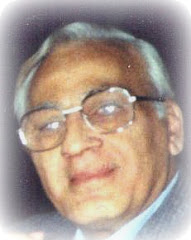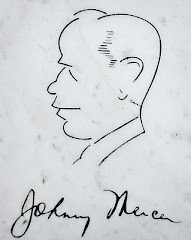 |
| Harry Warren and his Oscar |
1935
In light of last night's Academy Awards, today we're taking a look at the second tune to ever win the Oscar for Best Original Song (the first being "The Continental" in 1934). Introduced by Wini Shaw in Gold Diggers of 1935, "Lullaby of Broadway" was such an instant classic that later it was even used as background music in the Bette Davis film, Special Agent. With a peppy melody and lyrics that celebrate the wild Broadway nightlife, it's no wonder it captured the attention of Academy voters--even if Irving Berlin's "Cheek to Cheek" may have been the more deserving nominee that year...
Lyrics:
Come on along and listen to
The lullaby of Broadway
The hip hooray and ballyhoo
The lullaby of Broadway
The rumble of a subway train
The rattle of the taxis
The daffodils who entertain
At Angelo's and Maxi's
The lullaby of Broadway
The hip hooray and ballyhoo
The lullaby of Broadway
The rumble of a subway train
The rattle of the taxis
The daffodils who entertain
At Angelo's and Maxi's
When a Broadway baby says good night
It's early in the morning
Manhattan babies don't sleep tight
Until the dawn
It's early in the morning
Manhattan babies don't sleep tight
Until the dawn
Good night, baby
Good night, the milkman's on his way
Sleep tight, baby
Sleep tight, let's call it a day
Good night, the milkman's on his way
Sleep tight, baby
Sleep tight, let's call it a day
The band begins to go to town
And everyone goes crazy
You rock a bye your baby round
'Til everything gets hazy
Hush a bye, I'll buy you this and that
You hear a daddy saying
And baby goes home to her flat
To sleep all day
And everyone goes crazy
You rock a bye your baby round
'Til everything gets hazy
Hush a bye, I'll buy you this and that
You hear a daddy saying
And baby goes home to her flat
To sleep all day
Tony Bennett
Ella Fitzgerald
Bette Midler
The Andrew Sisters
Doris Day













